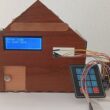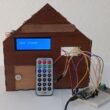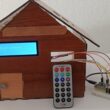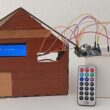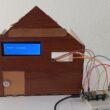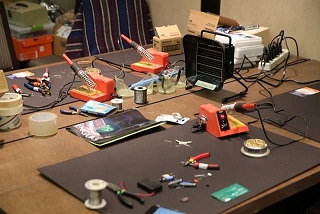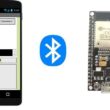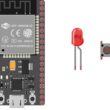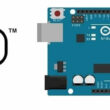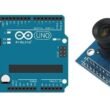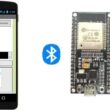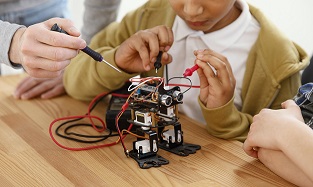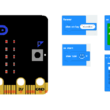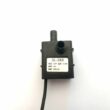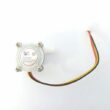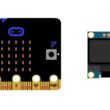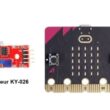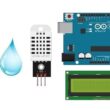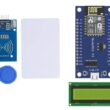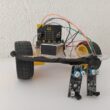The KY-026 flame sensor
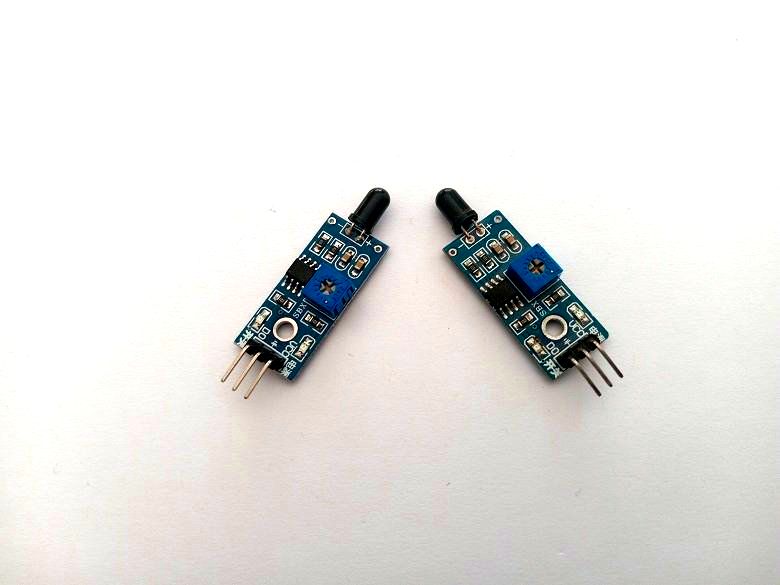
Defintion of the KY-026 flame sensor
The KY-026 flame sensor is a small module that is used to detect the presence of flames in the surrounding environment. It is based on the IR receiver and phototransistor, which detects the light in the IR spectrum emitted by the flames. The module has three pins: VCC, GND, and OUT. VCC and GND are used to power the module, and the OUT pin is used to output a digital signal when a flame is detected.
The KY-026 flame sensor is compatible with many microcontrollers, including Arduino and Raspberry Pi, making it easy to integrate into various projects. It is commonly used in fire detection systems, gas leak detection systems, and other safety-related applications.
To use the KY-026 flame sensor, you simply connect the VCC and GND pins to a power source and the OUT pin to a digital input pin on your microcontroller. Then, you can write a program to read the output signal from the sensor and take appropriate action based on the presence or absence of a flame. For example, you can sound an alarm or activate a sprinkler system if a flame is detected.
The pins of the KY-026 flame sensor
The KY-026 flame sensor has three pins:
VCC (+): This pin is used to provide power to the sensor. It should be connected to a 5V power source.
GND (-) : This pin is used as the ground reference for the sensor. It should be connected to the ground (GND) of the microcontroller or power supply.
DO: This pin is used to output a digital signal when the sensor detects a flame. The signal is normally high (5V) but goes low (0V) when a flame is detected.

Microcontrollers compatible with the KY-026 flame sensor
The KY-026 flame sensor is compatible with a wide range of microcontrollers, including:
Arduino boards: The KY-026 flame sensor can be easily connected to Arduino boards, such as the Arduino Uno, Nano, Mega, and others. Arduino provides a simple and user-friendly development environment, making it an excellent choice for beginners.
Raspberry Pi: The KY-026 flame sensor can also be used with the Raspberry Pi, a credit card-sized single-board computer. The Raspberry Pi provides more processing power than an Arduino and is suitable for more complex projects.
ESP8266/ESP32: The KY-026 flame sensor can also be used with the ESP8266 and ESP32 Wi-Fi modules. These modules provide Wi-Fi connectivity and are suitable for Internet of Things (IoT) projects.
PIC microcontrollers: The KY-026 flame sensor can also be used with PIC microcontrollers, such as the PIC16F877A and others.
STM32 microcontrollers: The KY-026 flame sensor can also be used with STM32 microcontrollers, such as the STM32F103C8T6 and others.
KY-026 Flame Sensor Programming
Here is an example program to use the KY-026 flame sensor with an Arduino board:
|
1 2 3 4 5 6 7 8 9 10 11 12 13 14 15 |
int flamePin = 2; // Connect the KY-026 sensor's OUT pin to digital pin 2 on the Arduino void setup() { pinMode(flamePin, INPUT); // Set the flame sensor pin as an input Serial.begin(9600); // Start the serial communication for debugging } void loop() { int flameValue = digitalRead(flamePin); // Read the flame sensor value if (flameValue == LOW) { // If the sensor detects a flame, the value will be LOW Serial.println("Flame detected!"); // Output a message to the serial monitor // Do something here, such as sounding an alarm or activating a sprinkler system } delay(500); // Wait for half a second before reading the sensor again } |
In this example program, we set the KY-026 sensor's OUT pin to digital pin 2 on the Arduino board. We then set the flame sensor pin as an input and start the serial communication for debugging purposes.
In the loop function, we read the value of the flame sensor using the digitalRead() function and store the value in the variable flameValue. If the value is LOW, the sensor has detected a flame, and we output a message to the serial monitor. We can then add code to perform an action, such as sounding an alarm or activating a sprinkler system.
Finally, we add a delay of half a second before reading the sensor again to avoid false positives and to reduce the amount of processing power used.
Using the KY-026 Flame Sensor in Robotic Projects
The KY-026 flame sensor can be used in various robotic projects that require flame detection. Here are some examples:
Firefighting robots: Firefighting robots are designed to detect and extinguish fires. By using the KY-026 flame sensor, the robot can detect the presence of a flame and move towards it to extinguish it.
Robotic stoves: The KY-026 flame sensor can also be used in robotic stoves to ensure that the flame is lit and to monitor its intensity. This can be useful in industrial applications where safety is a concern.
Robotic welding: Welding robots require precise control over the flame to ensure consistent quality. The KY-026 flame sensor can be used to monitor the flame and adjust it as necessary.
Robotics competitions: Robotics competitions often involve challenges that require the robot to detect and respond to flames. The KY-026 flame sensor can be used to detect the flame and trigger a response from the robot.
Agricultural robots: Agricultural robots can use the KY-026 flame sensor to detect wildfires or controlled burns in fields. The robot can then alert farmers or authorities to prevent further damage.
These are just a few examples of how the KY-026 flame sensor can be used in robotic projects. Its small size and ease of use make it an attractive option for a wide range of applications.

